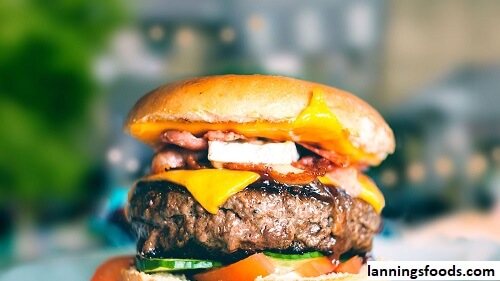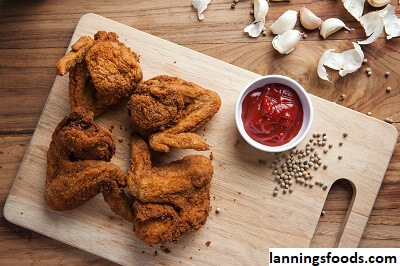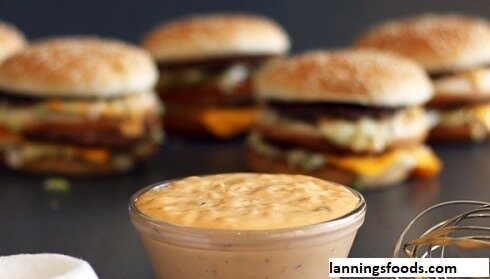Does McDonald’s Patent Their Recipe? An In-Depth Analysis
Recipe:
McDonald’s Recipe remains one of the most recognizable fast-food chains worldwide, with millions using Recipe their restaurant services daily. From burgers to fries to milkshakes, the golden arches make Recipe these the ultimate symbol of a meal at McDonald’s Recipe. However, a question keeps arising: do they patent their? This article will delve into this and probe other questions related to how the firm protects its culinary creations.

Knowing Patents:
Recipe:
Before venturing into McDonald’s practices, one ought to know what a patent entails. In simple words, a patent is a right granted to the inventor or the assignee about a specific period, usually 20 years, with rights to make, use, and sell the said invention. There are three major classifications of patents:
- Utility Patents: For new and useful processes, machines, articles of manufacture, or compositions of matter.
- Design Patents: New, original, and ornamental designs for an article of manufacture.
- Plant Patents: Plant Patents New and distinct varieties of plants.
Somewhat ironically, in some rare circumstances, a can be patented, especially if the process or method to create food has some uniqueness to it. Recipes that take pre-existing elements in a given dish do not qualify for protection under patent.
Recipe Protection at McDonald’s:
Recipe:
1. Trade Secrets:
Since McDonald’s does not patent, it relies on trade secrets. A trade secret may comprise formulas, practices, processes, designs, instruments, or patterns of doing business that are not reasonably ascertainable from public sources or known but by reasonably limited people, which confers a business with an advantage. The most famous example of a trade secret in the food industry is the Coca-Cola formula.
McDonald’s has undisclosed recipes and how their food is prepared so that competitors cannot easily copy them. For instance, the special spice mix in Chicken McNuggets is very confidential to denote their taste.
2. Menu Inventions:
Without patenting it, the company continues to innovate its menu. New products are mostly released with new branding and marketing strategies to create hype. For example, McFlurry was introduced to catch the growing dessert market shares, though it is not patented. This innovation keeps customers interested in what’s coming next and still coming back for more.
3. Quality Control and Standardization:
McDonald’s also has high standards of quality control such that any particular item meets its expectations. Its procedures in food preparation are standardized to train staff with specific guidelines to maintain uniformity across different locations. Although these processes are proprietary and integral to the companies’ business models, they are not patented.
The Role of Trademarks:
Recipe:
A further layer of security is provided by McDonald’s trademarks. Patents and trade secrets protect the process, while trademarks protect the identity of the branding attached to McDonald’s products. For example, the name “Big Mac” is a trademarked product to which a competitor company cannot make a similar-sounding product without first negotiating permission with McDonald’s. It is the variation in branding that will differentiate McDonald’s for a customer in an already extremely competitive market.
The International Plan:

Recipe:
As a global company, McDonald’s has several issues with international markets and regional tastes. The company changes the menu to succeed based on each region’s preferences. For instance, India offers the McSpicy Paneer or the McKebab in a few countries of the Middle East that bear no resemblance to patents. Through this, McDonald’s can maintain its competitive edge worldwide with secrecy keeping the core recipes.
Advantages of Not-Patented :
Recipe:
- Free flexibility: Through this, McDonald’s won’t be hampered by patents. She can be as flexible as she wishes. If she wants to alter a recipe, she can do so without being limited by existing patent protection.
- Cost-Effectiveness: This method is expensive because the search for and persecution of the patent is expensive. McDonald’s utilizes trade secrets to reduce other costs, such as marketing or expansion.
- Competition: The fast-food companies are very competitive, and it may take a short time for competitors to reproduce the recipes. Since the secret minimizes the risks of imitative ideas by competitors, this method may boost the confidence of consumers.
Challenges and Risks:
Recipe:
While holding the benefits of relying on secrets, it brings risks too. If a former employee discloses a recipe or if a competitor reverse-engineers a product, the secret could be compromised. This potential exposure adds to the reasons for strict internal controls as well as confidentiality agreements.
Frequently Asked Questions (FAQs):
Recipe:
1. Does McDonald’s have patents?
Yes, McDonald’s owns patents, but generally, those pertain to unique processes, equipment, or food preparation techniques rather than recipes.
Like, they may hold patent rights over the equipment used within their kitchens or techniques for processing foods.
2. Why doesn’t McDonald’s patent its recipes?
A recipe is considered to be protected as a trade secret of McDonald’s. The process of obtaining patents in is cumbersome and cost-intensive, and innovation in the fast food industry is extremely rapid; thus, any meal recipe patented may not offer much protection in the long run.
3. Are there any Examples of McDonald’s Secret?
Although the actual recipes are not divulged, some of the mystery items are the Big Mac sauce and the seasoning packet for Chicken McNuggets. These proprietary blends are what set apart the difference for McDonald’s offerings.
4. What is the McDonald’s system for maintaining the quality of its food?
There is tough quality control throughout all McDonald’s locations and uniform preparation techniques for every part and kind of food. The employees must operate strictly under specified rules so that an item sold elsewhere has the same taste and quality.
5. Are McDonald’s legally available to others to be used?
Of course, competition is free to copy McDonald’s menu items, either by reverse-engineering them or by making similar versions; however, this is irrelevant when it comes to trademarks or brand names. They can be sued if they so do without appropriate permission.
Conclusion:
Recipe:

McDonald’s will never copyright their recipes but instead resort to using trade secrets and trademarks which would be inflexible enough yet offer great options and freedom in innovation while still safe from the competitive advantage of other fast-food chains. As this happens to be one of the best-known institutions that has to adjust to altering consumer choices and global markets, it will undoubtedly modify its approach regarding protection. Yet at its core, trade secrets and branding will remain the main theme of its business strategy. Awareness of the subtleties involved in these decisions provides a rich insight into how a global giant such as McDonald’s maintains its status as a fast-food titan.